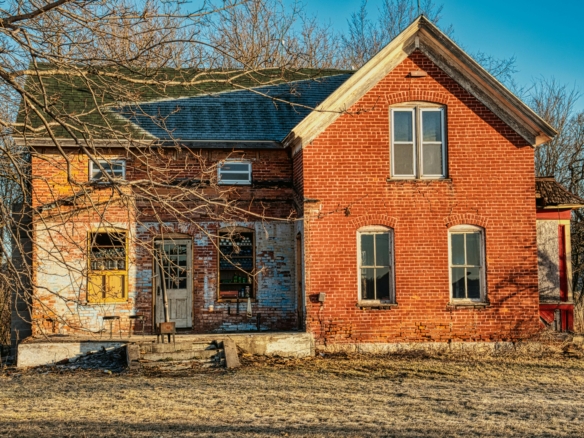Market overview
Like many Latin American countries, Uruguay is enjoying a growing popularity among international property buyers. The Republic of Uruguay is the second smallest nation in South America, but is not far behind Brazil when it comes to house prices. They have risen steadily in recent years, driven by increasing demand.
Foreign sales are primarily made by buyers from neighbours Argentina, who make up three quarters of the market, and Brazil. Investors from further afield account for a small percentage of activity. As a result, economic turbulence in either Argentina or Brazil can have a significant impact upon demand – and, in turn, prices. Nonetheless, the country’s tourism profile is definitely on the up, thanks to its warm summers and mild winters. Visitors tend to flock to Montevideo and the beach resort Punta del Este. Dubbed the St. Tropez of Uruguay, the city on the Atlantic coast also accounts for the majority of real estate transactions. Sun, sea, sand and strong property price growth? What is not to like?
The Selling Process
Marketing your property
The normal means of marketing a property in Uruguay is via an estate agent who can also value your property. Real estate agents earns commission fromboth sides of the transaction. The seller usually pays 3% and the buyer pays 3%. Each commission has 1.02% tax added for a total of 4% on each side. The exact sum may vary over time, but commission is typical whether there are one or two agents involved.

Legal representation
There are two legal experts available to sellers in Uruguay: notaries (escribano) or an English-speaking solicitor.
Unlike traditional lawyers, Uruguayannotaries are neutral government legalrepresentatives who act as witnesses toand registrars of property transactions.Under Uruguayan law, only deeds of sale(escrituras) witnessed and authorised by anotary can be registered at the landregistry. Your notary will prepare all theappropriate paperwork and ensure thishas been filled out correctly accordingto the wishes of both parties. The notaryalso will conduct title searches and has aresponsibility to make sure theappropriate property taxes are paid ontime. Your agent will be able to put you incontact with the notaries they use regularly.
It is essential to find an independentlawyer to represent your interests andoffer impartial legal advice. If you are notintending to be in Uruguay during thepurchase process, you will need to grantPower of Attorney to your solicitor whowill then act as your legal representative.

Verbal offer
A verbal offer will need to be made throughthe estate agent. Your lawyer will oversee proceedings, including any deposit orreservation payments and the formal agreement of final purchase price.

Legal checksr
Over a period of approximately 30 days, the escribano will review the history ofthe property going back 30 years, looking into such things as previous purchase/sale transactions, payment of taxes, and building codes compliance.

Contract
Once all the necessary legal checks have been completed to the satisfaction ofthe buyer, you will be ready to sign a private sales contract. Before this stage youshould have had it translated into English and ideally have English-speakingassistance on hand during the signing. The contract is prepared by the sellingbroker and signed at the office of the broker.The contract details the finer points of exactly what you are selling, and includesall the fundamental information about the sale such as the purchase price (includinghow and when it should be paid), the list of fixtures and fittings included andthe completion date when the deeds will be signed. This agreement commitsboth you and the buyer to complete the transaction and at this point the buyermust pay a deposit which will be forfeited if they walk away. However, if yourenege on the deal, you are liable repay the buyer twice the value of the deposit.

Deposit
After the signing of the boleto, the buyer will be required to deposit 10% of thepurchase price with the escribano, which can be transferred to his bank accountor an escrow account.

Completion
After all the legal paperwork has been completed, you will be ready to sign theescritura. This is the moment when ownership of the property passes from vendorto buyer. An escribano from a Notary Public must be present at this event todraft the document, then formally witness and register the transfer of ownershipon behalf of the Uruguayan government.Both parties will need to provide passports or other proof of identity and unlessyou speak good Spanish, the notary will insist that a translator is present to ensureyou understand the full implications of the contract you are entering into.Upon completion, the buyer must pay the balance of the purchase price, all professionalfees, transfer taxes and notary fees.

Land registry
In order for the transfer of property toassume obtain legal status, it must beregistered in the appropriate area wherethe property is located.The public deed is delivered to The RealEstate Office (Registro de la PropiedadInmueble) for recording under the name of the buyer.
Selling Costs Checklist

Once you have met these costs, you have paid to sell your home
Selling Costs Checklist
src=”http:>
Once you have met these costs, you have paid to sell your home
Notary fees – standard is 3% of property price, although there are add-ons Transfer tax – split evenly between buyer and seller, each paying 2% CGT – a flat 12% upon sales price minus acquisition cost Bank and legal fees – these can vary
Disclaimer: All information contained within this guide is provided in good faith. Every effort has been taken to ensure that it remains up to date. However, some inaccuracies may occur. Before carrying out any property transaction overseas, we recommend seeking legal advice.
Photo:AJC1, Game of Light,




